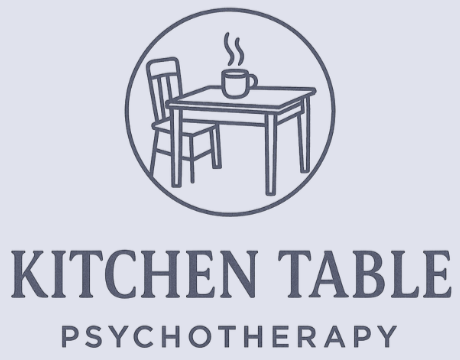
HOLISTIC PSYCHOTHERAPY IN MASSACHUSETTS
Couples/Relationship Therapy
For Couples Who Want to Fight Better
Are You...
-Tired of having the same fight over and over only for things to feel worse afterward?
-Feeling emotionally distant or disconnected after conflict, even when the issue seems small?
-Worried that if you don’t change how you argue, something deeper will break?
-Ready to stop avoiding disagreements, but afraid you’ll hurt each other more?
You don’t have to wait until your relationship is on its knees to ask for help. In fact, couples therapy is often most effective before things spiral. If you live in Massachusetts (or are eligible for virtual therapy in MA) and want to shift how you fight, you’re in the right place.
Why “Fighting Better” Matters
All couples fight. The difference between a relationship that thrives and one that breaks down often comes down to how partners handle conflict—not whether it happens.
When arguments repeatedly end in hurt, blame, or withdrawal, it chips away at trust, intimacy, and connection. But when couples learn to manage conflict skillfully, even heated moments can become opportunities for deeper understanding, repair, and closeness.
By offering therapy to couples who are still committed to staying together, I help you transform conflict from a threat into a tool—one that strengthens your bond rather than frays it.
How Couples Therapy Works at Kitchen Table Psychotherapy
⬢ Focus on Core Conflict Skills
You and your partner will gradually build skills to:
Recognize and break reactive cycles (escalation, stonewalling, defensive patterns)
Communicate needs, wants, and boundaries in clear, grounded ways
Listen deeply and empathetically, even when you're emotionally activated
Repair and reconnect after conflicts
Cultivate emotional attunement that persists beyond the fight
⬢ Move Beyond Words: Creative & Body-Centered Couples Therapy
Sometimes, talking just isn’t enough. When words fall short—or you feel like you're having the same conversation over and over with no real shift—it may be time to engage your relationship on a deeper, more embodied level.
In addition to traditional couples counseling, I offer dance/movement therapy and creative, body-centered interventions to help couples:
Notice and shift emotional patterns held in the body
Improve nonverbal attunement and emotional presence
Feel seen and understood beyond just the cognitive or verbal level
Reconnect with feelings of safety, closeness, and emotional aliveness
These methods can be especially powerful when you're stuck in communication loops, or when one or both partners feel like “no matter how I say it, they just don’t get it.”
While not every couple is drawn to creative approaches, many who try them report they were the game changer—helping them access parts of their relationship that talking never reached.
Is This Right for You?
Couples Therapy at Kitchen Table Psychotherapy is a fit when:
All partners are still committed to the relationship.
You’re showing up to reconnect, not to justify ending things.
You’re willing to learn new patterns, even if it feels uncomfortable.
You’re in Massachusetts (or working virtually within MA) and seeking local, licensed support.
If one or both of you are leaning toward divorce or breakup, Discernment Counseling may be a better approach. I can support referrals or help you find the right next step.
What Growth Can Look Like
Feeling truly seen, heard, and valued by your partner
Arguments that bring clarity and closeness, rather than distance
Acting as a team, instead of turning against each other in moments of stress
Clearer communication and fewer misunderstandings
A deeper sense of trust, emotional connection, and willingness to be vulnerable
More fulfilling intimacy—emotionally, physically, and relationally

If you’re ready to stop fighting against each other and begin fighting for your relationship, I’m here to walk that path with you.
Click below to schedule your intake session!
Or, check out the FAQ page if you have any questions.
Frequently Asked Questions
-
Couples therapy for fighting better focuses on improving how partners communicate, resolve conflict, and reconnect after disagreements. Unlike traditional couples counseling that often starts during a crisis, this therapy helps couples proactively develop healthier conflict skills before problems become overwhelming. Through tailored approaches, including creative and body-centered methods like dance/movement therapy, couples learn to transform fights into opportunities for deeper understanding and connection.
-
Couples therapy at Kitchen Table Psychotherapy is best suited for couples in Massachusetts who are still committed to the relationship and want to improve communication and emotional intimacy. If you find yourselves stuck in repetitive arguments or feeling disconnected after conflicts, therapy can help. However, if either partner is leaning strongly toward separation or divorce, discernment counseling might be a better fit to explore those decisions more deeply.
-
Yes! I provide virtual couples therapy sessions for clients located anywhere within Massachusetts. This allows you to access professional, licensed relationship counseling from the comfort and privacy of your own home—especially helpful for busy couples or those having a hard time accessing couples therapy locally.
-
I am a licensed marriage and family therapist (LMFT) with specialized training in a variety of modalities designed specifically for couples and relationships, such as Emotionally Focused Therapy (EFT), Solution-Focused Therapy (SFT), Narrative Therapy, Gottman Method, and sex therapy. My approach blends these evidence-based conflict resolution skills with creative, somatic, and body-centered techniques like dance/movement therapy. These methods engage both verbal and nonverbal ways of relating, helping couples access deeper levels of emotional connection and repair that words alone often miss. This makes therapy especially effective for couples who feel stuck in communication loops or struggle to feel truly understood.
-
Every relationship is unique, so therapy length varies. Research suggests the average length for full resolution of issues is 12 to 25 sessions, which typically takes about 3 to 10 months when attending weekly sessions. Some couples see meaningful changes within a few sessions, while others engage in longer-term work to deepen their connection and navigate complex life transitions together. The actual time varies greatly depending on the specific couple, the nature and depth of their problems, their commitment to the process, and the approaches that they resonate with.
-
In the initial session, we’ll explore your relationship history, patterns of conflict, and what brought you to therapy. We’ll discuss your goals for therapy and determine if this approach is a good fit. This is also a chance to ask any questions you have about the process. From there, we’ll begin building core skills to help you fight better and reconnect.
-
Getting started is easy! You can schedule an intake session online or reach out via the contact form on the Kitchen Table Psychotherapy website. Wherever you are, I’m here to support you every step of the way.






